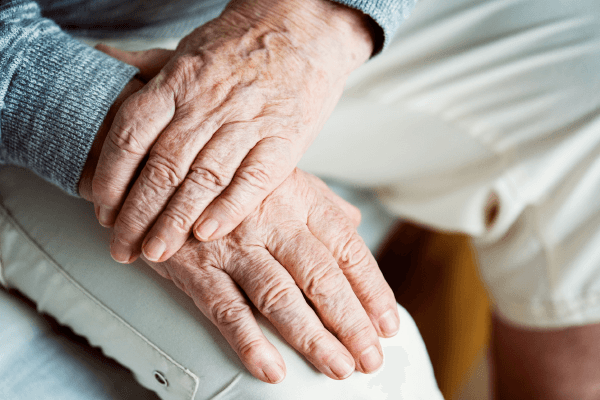Every year, more than 1.6 million adults in the United States are treated for fall-related injuries. One in every four adults over the age of 65 experiences a fall each year, and while not all falls are serious, it’s vital that those who are injured in a fall are treated promptly. The longer someone spends on the ground awaiting treatment for their injury, the greater the risk of developing complications such as hypothermia, lasting loss of mobility or dehydration.
Medical alert systems make it easier for seniors to get rapid treatment in the event of a fall or if they are taken ill for other reasons. Most medical alert systems use a wearable help button that the user must press to request aid. Some more sophisticated systems offer a device with automatic fall detection. These devices detect the sudden motion of a fall and place a call to a help center when a fall happens. The call center operator asks the user if they are OK. If the user confirms they need help or is unable to respond at all, EMTs are dispatched to the senior’s location.
Automatic fall detection is still a relatively new technology and one for which some companies charge a premium. Here, we list some of the best providers of medical alert devices that offer fall detection features at a reasonable price.
Medical Alert Systems with Automatic Fall Detection to Consider
Alert1: Free Fall Detection
Alert1 offers a medical alert system with a fall detection pendant. The pendant has a battery life of two years, and users receive an unlimited call and talk-time allowance as part of their subscription. The system is preconfigured, so all users have to do is plug in the base unit and put it in a safe place in their home. There’s no complicated device pairing or setup process to go through.
Alert1’s operators are highly trained and stay on the line with callers until help arrives, giving users extra peace of mind. Subscriptions start at $30.95 per month for in-home monitoring and fall detection. Users who sign up for an annual or semiannual subscription receive the first month free.
Bay Alarm Medical: Clear Two-Way Communication
Bay Alarm Medical offers two in-home systems, one which uses a landline and one cellular product. The base station features clear speakers and a sensitive microphone, making it easy for seniors to understand the operators at the monitoring center and communicate with them effectively. The unit can also be used to answer normal phone calls.
The landline unit costs $19.95, making it one of the more affordable devices on the market today. Fall detection is an optional extra with Bay Alarm Medical’s devices and costs $10 per month. Seniors can also add other optional extras, such as device insurance, lockboxes and additional wall-mounted buttons. These extras can give seniors peace of mind that even if they forget to wear their pendant, they will never be too far away from a help button in their home.
Philips LifeLine: Accurate Fall Detection
Philips Lifeline‘s HomeSafe with AutoAlert claims to be able to detect 95% of falls and says it has a low false alarm rate. The device is incredibly popular thanks to the Philips brand name, and according to the manufacturers, HomeSafe devices have successfully detected more than 200,000 falls since the product launched.
The fall detection device is offered in pendant form, and the pendant is smaller and lighter than those from many rival brands. This is something many seniors will appreciate, especially if they’d prefer not to be seen wearing a standard help button. The neck cord is adjustable for comfort and ease of use.
Philips Lifeline includes automatic fall detection in the price of the HomeSafe with AutoAlert product. The subscription fee is slightly higher than that of Alert1 and Bay Alarm Medical, at $44.95 per month, and the company also charges an activation fee for new customers. The company has some interesting optional extras available, including an automatic medication dispenser, a voice amplifier and a “care circle” app. Some seniors feel it’s worth paying a premium for these extras and the reassurance of using a trusted brand.
Choosing a Fall Detection System
It’s common for medical alert system manufacturers to offer fall detection as an optional extra. The companies listed above either provide the system as standard or, in the case of Bay Alarm Medical, have such attractive pricing that it’s still worth considering, even with the extra cost of an automatic fall detection device.
While fall detection is a very important feature, it shouldn’t be the only thing prospective buyers use to make a decision. Before signing up for a service, think about other features, such as wall buttons, caregiver apps or extra wearables. Seniors must carry their fall detection system with them every day to truly be able to depend on it, so it’s important to find one that’s reliable, easy to use and that the senior is happy to wear daily.

